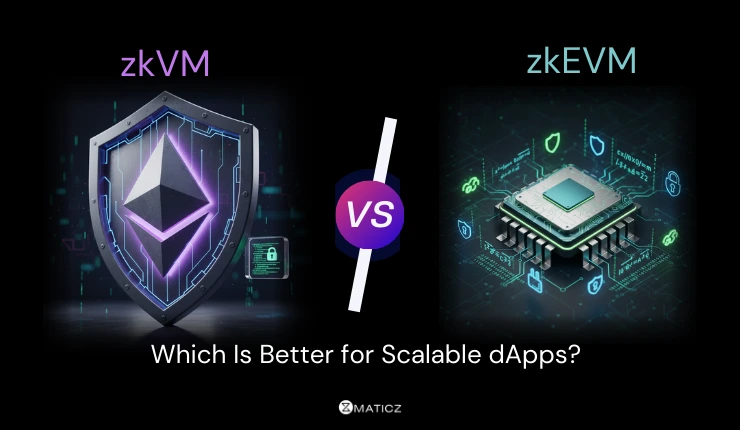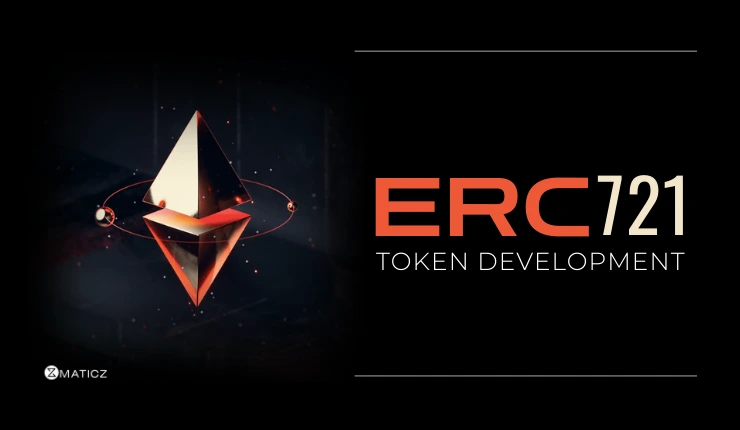Share Posts

All About Appchain
46
3245
103
With the increased adoption of blockchain, there is an increasing proliferation of blockchain applications. These applications have made their way into various industries like gaming, supply chain, healthcare, art, and more, all of which require more customizability to meet their various demands. This is not possible in general-purpose blockchain and yet another major challenge associated with this is that it becomes inefficient when it comes to handling large volumes of transactions.
But what if there is a dedicated block space to build a specific application, where you can customize their multiple layers of stack? This is where Appchain comes in to address all these concerns. Blockchain is known for its continuous innovation and one such exciting development that is getting a lot of buzz is Appchains. In this blog, we have explored what Appchain exactly are, how they work, and why you should consider using them when building applications.
What is an Appchain?
Appchain is designed specifically for applications to meet a particular use case or business requirements. It is also called an application-specific blockchain designed to handle the needs of just a specific type of application such as gaming, finance, or any other app.
Unlike other general-purpose blockchains that serve various applications, it allows for customization at the architectural level and can be optimized for specific functions or workflows. It offers a more focused blockchain experience as it is built with an intended application in mind. Appchain can be either public or private, but for security reasons, it primarily depends on public blockchain networks.
For example, if you want to build a game app like Axie Infinity, you need to add various custom features to attract more players. Once your player base grows, it is important to ensure that your game can handle a large number of players and transactions without any slowdowns. Using a general-purpose blockchain might not be sufficient for this. You may need an appchain that allows you to include custom features and optimizations, making it scalable to manage large volumes of transactions and increased load without any performance issues.
There are three main types of appchains such as sovereign, hub and spoke, and layered. Here is a breakdown of them in detail.
Sovereign Appchain - As the name suggests, sovereign appchains work independently with their consensus mechanism. It does not depend on any separate settlement layer. This kind of appchain can be customized fully to fit your needs.
Hub-and-spoke Appchain - This appchain consists of a central blockchain network where multiple blockchains are interconnected. It coordinates the interaction between different appchains and facilitates customization for a specific use case.
Layered Appchain - This type of appchain is built on an existing blockchain network that is used for core functions. But it also has multiple layers of blockchain including base layers and additional layers that acquire security and consensus from their underlying layer to handle particular tasks.
How Does Appchain Work?
Appchains are customizable L2s and do similar work as layer-2 chains. However, they mainly operate on layer-1 blockchains to offer an operational network. Also, they inherit the security model of the layer they settle on which could be even general-purpose chains like Ethereum. They were built with the understanding that they could provide dApps with a wider range of scaling solutions.
Dedicated Network
Appchain has its specialized blockchain network on which it works. It runs independently and has a more stable environment with less network congestion. It is set up solely for the applications so that they can handle operations and transactions without any interference from other blockchains.
Customized Consensus Mechanism
The main thing that sets appchain apart is that it is not an all-in-one solution. Rather than relying on a consensus mechanism, appchains have a consensus mechanism that works best for their specific application or use case. For example, a consensus mechanism intended for healthcare may not be used in an appchain for supply chain management.
Tailored Smart Contracts
On appchains, smart contracts can be designed with rules that meet the demands of the specific application. Tailored smart contracts contain more intricate and subtle contract logic that makes operations smoother and automates them for more efficiency.
An appchain operates through several key layers, each designed to handle different aspects of blockchain functionality. Here is an overview of how these layers work together to make an appchain function effectively.
1. Network Layer
The network layer is the foundational infrastructure of the appchain. It deals with how nodes in the blockchain network communicate with each other. Nodes on the appchain network connect and share information. This allows them to synchronize and agree on the state of the blockchain.
2. Application Layer
The application layer is where the actual applications and services run on the appchain. Applications built on the appchain work at this layer, offering great interfaces for users to engage with the blockchain
3. Data Layer
The data layer is responsible for storing and managing all the data on the appchain, including transactions, smart contracts, and state changes. This layer keeps a permanent data record, ensuring that transactions and contract executions are securely logged.
4. Consensus Layer
The consensus layer is responsible for ensuring that all nodes agree on the state of the blockchain and that transactions are valid. This layer employs a consensus mechanism, such as Proof of Stake or Proof of Work, to validate and reach an agreement on new transaction blocks.
5. Smart Contract Layer
The smart contract layer is where programmable contracts are executed. This layer runs smart contracts according to their programmed rules, automatically performing actions like transferring assets or updating records.
Benefits Of Using Appchain
Appchains provide a tailored and efficient environment that supports growth, innovation, and seamless integration. They are an excellent choice for developers looking to build scalable, high-performance applications with the flexibility to adapt and evolve.
Scalability
Appchains are designed to handle growth seamlessly. As your application attracts more users or processes more transactions, appchains can expand to meet these demands without slowing down. This ensures that your app remains fast and responsive, even as it scales up to accommodate increasing traffic and data loads.
Customization
One of the major advantages of appchains is the ability to tailor the blockchain environment to your specific needs. Instead of fitting your application into a one-size-fits-all solution, you can customize the underlying blockchain to suit your app’s unique requirements. This includes adjusting parameters, features, and functionalities, leading to a more efficient and effective application.
Interoperability
Appchains can communicate and work seamlessly with other blockchains and systems. This interoperability allows your application to integrate with various platforms and services, facilitating data exchange and collaborative functionalities.
Innovation
With appchains, you have the freedom to experiment and innovate without risking the stability of a broader network. You can test new features and ideas in a controlled environment, ensuring that innovations are well-vetted before being rolled out. This flexibility encourages creative solutions and advancements within your application.
High Performance
Appchains are optimized for high performance, offering faster transaction speeds and efficient processing. By dedicating resources specifically to your app’s needs, appchains can enhance performance and user experience.
Sovereignty
Every Appchain works independently from other blockchains. This allows them to focus mainly on the application for which it is intended. It is free from distractions that occur on other larger blockchain networks.
Why Choose Maticz For Appchain Development?
As we look to the future, appchains are set to transform the way we build and scale applications. The main reason why they play a key role in advancing blockchain technology is their ability to offer customized solutions, high performance, and improved scalability.
As more people learn how profitable it is to use appchains for building applications, we can witness a phenomenal growth in its usage. If you are looking to embrace this growing opportunity and be at the forefront of technological advancements, then it is the right time for appchain development.
Maticz is an industry-leading blockchain development company that offers unique blockchain development solutions using innovative approaches and technologies. We have a proven track record of building customized blockchains with industry-specific functionalities that match client's requirements. We develop various types of blockchain including appchain across diverse networks such as Ethereum, Cosmos, etc. Contact us today to discuss this in more detail.
Tap Into the Future
The latest insights, posts, and project updates - straight to your inbox.




